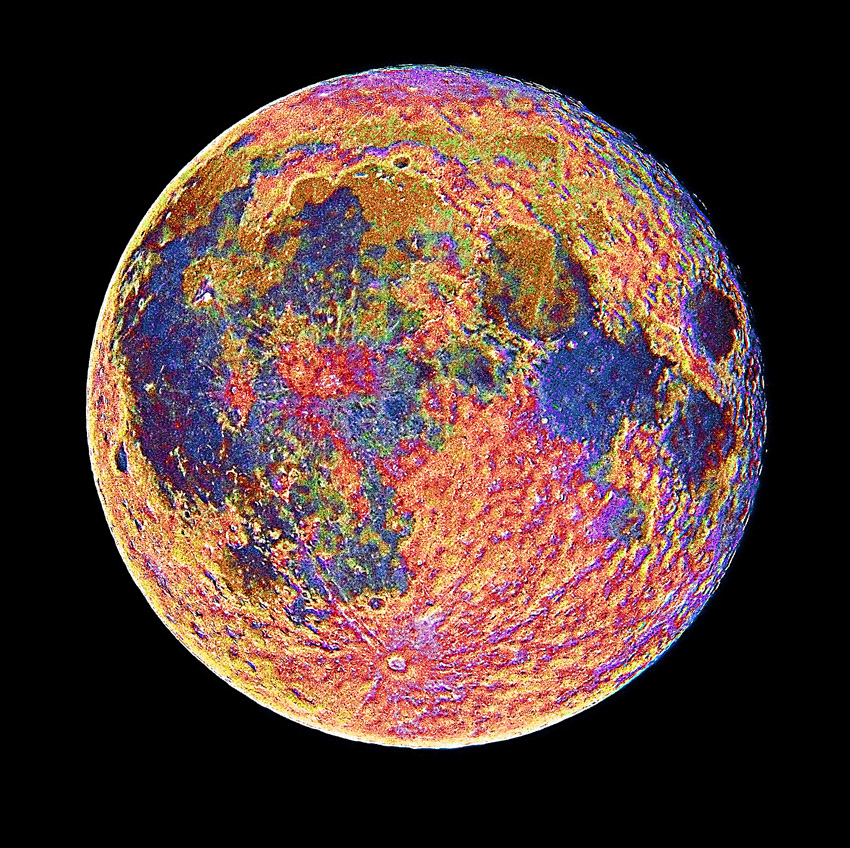September 21, 2023
Dreaming in Color
Originally published September 6, 2013

image by Daniel Leclerc, Quebec, Canada
There is more than a monochromatic surface on the Moon, and astrophotographers like to show this in various ways. I could not resist the temptation of making my own version of the "colored Moon". Even my simple digital camera can capture subtle color details that are mostly hidden to our naked eye. These colors can be enhanced afterwards by digital processing, revealing many different geological formations composed of various minerals. In my image, the exaggerated color scheme emphasizes composition differences. For example, the Sea of Tranquillity shows as a blue area at right of my picture and reveals a titanium-rich area. Just above, orange hues reveal a region relatively poor in titanium in the Sea of Serenity. We can see several similarities between my amateur picture and the professional work previously done by NASA's Galileo project.
Daniel Leclerc
Technical Details
My picture was done with a Sky-Watcher 200mm telescope, on the EQ5 mount. Six images were done with a basic point-and-shoot Olympus Stylus 850SW mini-camera, in afocal position with the camera in the macro photo mode, in front of a 25mm eyepiece. Settings were ISO 64, for 1/320 seconds. The 6 pictures were centered with NINOX tool, stacked with AutoStakkert2!, and IRIS wavelets were used for making the image better. Then, I increased the color saturation with IRIS and Photoshop for mimicking the NASA picture. My original pictures were done on December 28th 2012. It was a windy night with a lot of clouds, but I wanted to get this last full Moon of 2012 and I captured it through the clouds when they were less dense... my fingers were too cold (and getting red!) for waiting longer until the clouds go away (-14 Celcius!).
Yesterday's LPOD: A Russian Corner
Tomorrow's LPOD: A Classic Returns
COMMENTS?
Register, Log in, and join in the comments.



